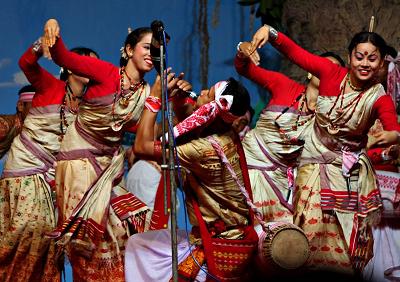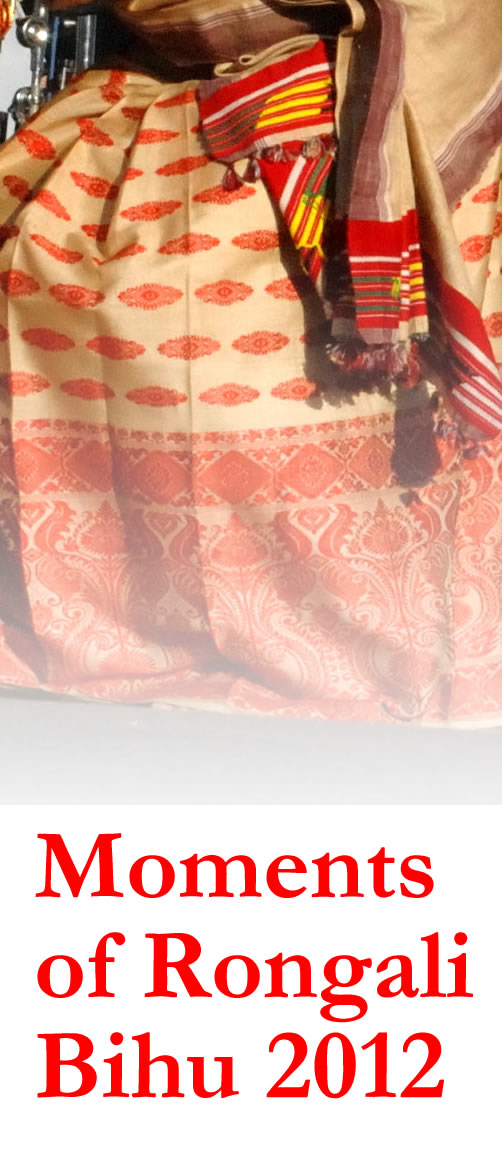Best viewed @ 1024x768 resolution
Bihu is the heart of Assamese society. It is the symbol of Assamese culture and festival.
Rongali bihu is the festival for which every Assamese person waits eagerly for the whole year
to enjoy to the fullest. Rongali Bihu or Bohag Bihu is the new year of Assamese calendar and
is celebrated through out the month.

Modern Bihu Dance - Performed on Stage (Photo by Ronjoy Gogoi)
|
The new year of Assamese calendar usually falls on April 15. The new year starts with the
month 'Bohag'. This is the reason why Rongali Bihu is also called 'Bohag Bihu'. The word
'Rongali' is derived from 'Rong' which means Happiness and celebrations. So this festival
represent happiness of the society. All the three Bihu festivals of Assam are related to
harvesting. Rongali bihu falls in a period when the there is no work for the cultivators but
still there is enough in the store to enjoy. Being a agriculture based state, Assam, has always
marked this Bihu as the symbol of joy. This also biggest the festival in Assam and celebrated
in every corner of the state.
On the eve of the new year,i.e.,
a day before the new year 'Goru Bihu' is celbrated. On this day, all the cattles are worshiped.
They have been taken down to river, ponds for a bath and also some rituals are done.
On the day of new year, 'Manhuor Bihu' is celebrated. This day is the actual Rongali Bihu day
and the celebrations start from the very early morning. There is a very important ritual on this
day to gift 'Gamosa' or 'Bihuan' to the older. Every kitchen in the state cook various ptiha(sweets) and
also tasty 'Jolpan' is served. People take blessings of others and get together. And starts the
famous Bihu dance and songs. A special type of Bihu dance along with bihu and some traiditional religious
songs called 'Husori'. This is a fun way to give and take blessings and wishing everyone a happy
and prosperous new year. It's mainly participated by youths only. This husori continues for the
whole month of Bohag.
Rongali Bihu or Bohag Bihu has come a long way from villages, open fields to towns and stages, auditoriums.
It's gaining popularity in stage in modern times, though slightly losing some culture and tradition,
yet it's spreading across the nation and even across the world. There are various form of Bihu dance which
are now enclosed into artificial stages from natural fields.
Rongali reflects the rich culture of Assamese society. Bihu songs involve various indegenous
Assamese musical instruments like pepa, gogona, dhol, toka, taal, hutuli, etc. The Bihu dance
is related to rich colourful attire of the Assamese culture. This Bohag Bihu also involves
various delicious Assamese recipes.
When it comes to Assamese culture and society the first thing that comes to any one inside
or outside of Assam is nothing but Bihu, to be more specific, Rongali(Bohag) Bihu.
|

|
|
Copyright © 2007-2008 onlinesivasagar.com(Abhijit Borah)
|